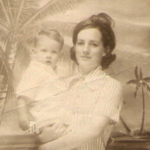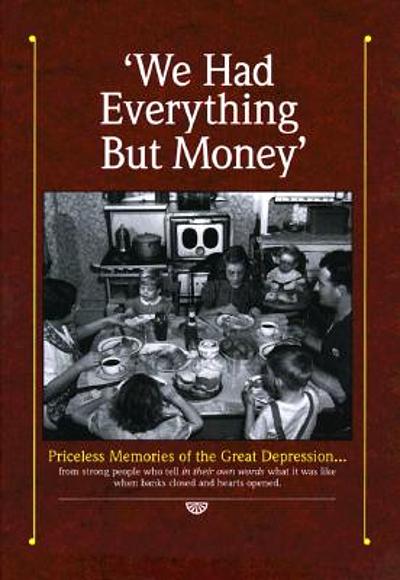Comments On Article: The Diary Readings Of Rose And Emma February 2 - 8, 1932 And 1933
If you would like to share your comments for article The diary readings of Rose and Emma February 2 - 8, 1932 and 1933, this is where to do it!
Click the Reply To This Topic button below to post yours.
Indeed I am waiting for spring as well. It has been very cold the last week; we have had freezing temperatures at night and frosty mornings. I welcome a bit of warmth so I can get my garden going again.
Yes, it was common practice to lay out the deceased in a parlor or small room where friends and relatives could come to pay respects to the dead. With the development of funeral parlors the custom has pretty much gone by the wayside. In fact, now the discussion is about human composting of all things, in very crowded areas. And some people choose cremation.
I watched a Ken Burns documentary last night called The Shakers. It was about the religious group and their ways, which was very interesting and informative. I learned a lot: they farmed, baked, invented things like the clothes peg, the circular saw, and the seed packet. Their furniture and architecture is renowned. They too faced what we do today and eventually became more modern as they had to; it seems that the lovely cloth they made for garments and to sell to the outside community became less popular with the advance of the Industrial Revolution. Fabric could be made for a lot less and naturally was cheaper to buy, although not the quality that they produced. The young grew up and restless for the new world; so the group dwindled. Also, and this was a surprise, one had to be celibate to join them. They had no marriages and families but did adopt children like orphans. There are only two Shakers left now.
I think that the way the world develops, which is not always for the better, makes things hard in many ways. We have technology like the cell phone; but it disconnects people from one another. I do not own one. We have computers, but they often fail us and present problems of their own.; such as social media pages that present problems to vulnerable children. Still, these modern things have their uses if used moderatly and prudently.
My late aunt (born 1922) was a young adult when she was told to take her turn to sit up with the dead person at a family home on a Saturday night while the rest of the family slept. She had to sit up all night with the body. Nothing spooky happened that night - her point was that they told her to do it, and she was the only one who had to teach Sunday School at 8 the next morning and sing in church after that. Even in her 90's, she still wondered why on earth they picked her for that night. She was very glad when that practice died out.
I can't imagine dealing with a house fire in a blizzard - with a new baby and a very ill person living there to boot! So many homes back then had multiple fire hazards in the homes. There was probably no insurance, either.
I noticed that one of the diaries talks about peddling. I assumed that meant shopping, not selling, although I'd always heard peddling used as a word for selling. I'd not heard shopping called that before. Am I right or wrong about what the term peddling means here in this instance?
I think it means selling something door-to-door, because I've never heard shopping referred to as peddling.
However I just looked peddle up in a 1936 dictionary, to see if it used to mean something different, and found this:
1. To travel about with wares for sale; to sell from place to place; to hawk.
2. To do a small business; to be busy about trifles; piddle.
So there's a chance they were using it in the second way, to mean "running errands" in general.
My guess would still be that they were selling something, though.
Regarding funerals, the last known at home viewing in my family history was in my husband's family in 1922. The matriarch of the family died Dec. 25th, and her body was kept in an unheated part of the house until the viewing, which was at the home. That's all I know. Looking through old newspapers, I do see the presence of funeral homes in small communities in the 1930s, so they existed.
I laughed when I saw Emma's entry on Thursday, February 2, 1933 "One could see their shadow anytime today." That told me that she probably lived in a community of or descended from German immigrants as she was familiar with Ground Hogs day! This of course led to an internet search, as I love history, and sure enough, Iowa has deep German roots.
I am reading about The Great Depression in general, and it seems that the times affected people in widely different ways. I am particularly enjoying a book published by Reminisce magazine, a collection of reader's personal stories. It's called "We Had Everything But Money" and I found it at my local library.
They did rely on each other more back then. They had to. They didn't have all of the rules and procedures we have today. No one would be allowed to keep a dead body in their house these days! Modern life has many advantages but it has often taken away our ability to do for ourselves, and for others!
Debbie (in PA) I got that book from the library yesterday. I'm going to start reading it today. :)
I love that book. I bought it used several years ago and reread it at least once a year!
There is a Shaker village run like a museum in Kentucky, or at least there used to be. We visited it in 2008 and it was very interesting. Such simplistic beauty in their homes and wares.
Oh, yes. It was covered (or at least one community) in the little documentary. I think it was called Pleasant Hill; is that the one? I must say that I admired them, both for their community ideas and for their talents as people who were self-reliant and who helped others. I was just thinking after I saw it that I would like to go visit one of those places. I hope it is still being supported.
It is really interesting to see that the tradition of keeping a body at home and staying up all night (the wake) has gone in the US. While I also haven’t seen this happen in the UK it is still common in rural areas over in the Republic of Ireland https://rip.ie/article.php?AID=32
The funeral usually occurs within a couple of days of the death unlike in the UK where it can be weeks or even months later if there is to be a cremation. The whole community will come to pay their respects to the deceased and all the locally owned shops in town will close for a short while when the hearse carrying the coffin passes for the funeral. It really ties a community together.
I forgot about the funerals taking place in the homes and I'm going to see if our little library has that book or can get the book. I'd like to read it too!

Loading more pages
NEW! Join the mailing list to get email notifications when new articles are posted to our site.
Thank you for joining!
IMPORTANT!
You were sent an email to confirm your subscription to our mailing list.
Please click the link in that email to confirm or you won't be added.
If you have not received the email within a few minutes please check your spam folder.

